Bamboo Provides Biomass for the Production of Renewable Energy
Bamboo is a sustainable energy source that produces 1 kWh of electricity from 1,2 kg of bamboo. This is similar to the biomass requirements for wood products, but outperforms other types of biomass sources such as hemp, bagasse or rice husk. Bamboo can produce an enormous amount of biomass in a relatively short period of time, which makes it an important reforestation resource in many countries.
Bamboo biomass can be used as a substitute for firewood as it is processed into various energy products such as charcoal, pellets and briquettes through thermal or biochemical transformations.
Biomass Calorific Value Comparison
| Biomass | LHV MJ/Kg | HHV MJ/Kg | LHV
Kcal/Kg | HHV
Kcal/Kg |
|---|---|---|---|---|
| Bagasse | 17,7 | 19,4 | 4230 | 4637 |
| Bamboo | 19,0 | 19,8 | 4541 | 4732 |
| Birch | 18,7 | 20,1 | 4469 | 4804 |
| Cherry | 17,9 | 19,1 | 4278 | 4565 |
| Coconut | 16,6 | 17,8 | 3967 | 4254 |
| Cypress | 21,5 | 23,0 | 5139 | 5497 |
| Douglas | 19,7 | 21,0 | 4708 | 5019 |
| Elm | 19,0 | 20,5 | 4541 | 4900 |
| Eucalyptus | 18,3 | 19,6 | 4374 | 4684 |
| Hemp | 16,5 | 17,6 | 3944 | 4206 |
| Larch | 18,7 | 20,1 | 4469 | 4804 |
| Maple | 18,7 | 20,0 | 4469 | 4780 |
| Miscanthus | 17,8 | 19,1 | 4254 | 4565 |
| Oak | 17,4 | 18,8 | 4159 | 4493 |
| Pine | 19,5 | 20,8 | 4661 | 4971 |
| Poplar | 19,4 | 20,8 | 4637 | 4971 |
| Rice husk | 14,2 | 15,4 | 3394 | 3681 |
| Spruce | 18,5 | 19,8 | 4422 | 4732 |
| Switchgrass | 16,8 | 19,1 | 4015 | 4565 |
| Teak | 18,9 | 20,2 | 4517 | 4828 |
| Willow | 17,3 | 18,6 | 4135 | 4445 |
Values are for the lower (LHV) and higher heating value (HHV) on dry basis. | Source: Energy Research Center of the Netherlands
Charcoal is used in many countries. Studies show that the calorific value of bamboo charcoal is approximately 29 MJ/kg which is comparable to commonly used biomass resources such as spruce or eucalyptus. In addition, comparative life cycle assessments reveals that bamboo charcoal production is a more cost-effective and environmentally friendly option.
Pellets are also a reliable biomass energy source. In terms of mass and energy density, pellets from bamboo have characteristics that are superior to other biomass products, such as chips and briquettes. Its higher density makes transportation easier and more cost-effective. Bamboo pellets have a greater energy efficiency with good properties for domestic and industrial use.
Electricity can be generated from bamboo by gasification. This is a process that involves the combustion of biomass in a special unit that powers an electricity-generating turbine. Feasibility studies show that 2 bamboo poles of approximately 10 kg each, can provide enough energy for one family for 24 hours. The by-product that is produced from the gasification process is charcoal, which can be used for cooking or soil fertilization.
Forum Discussions that you might find interesting
I am Panagiotis from Greece and I am interested in growing bamboo in my country. I want to use it for biomass si I need a type of bamboo that produces a lot of mass. I was thinking of something that I can plant at 1 x 1 m apart so I can plant a lot of them. Are there any suggestions to what bamboo species I could use?
Do you know how Guadua compares to "Beema" (Bambusa balcooa) in India propagated by Growmore? Beema bamboo is very thick with a small hole so I'm trying to find reliable 3rd party info on the biomass of a culm when we start harvesting, presumably at the end of year 4.
I'm curious to know which bamboo produces more biomass in a per hectare basis: Dendrocalamus asper or Guadua angustifolia?
Guadua Bamboo SAS

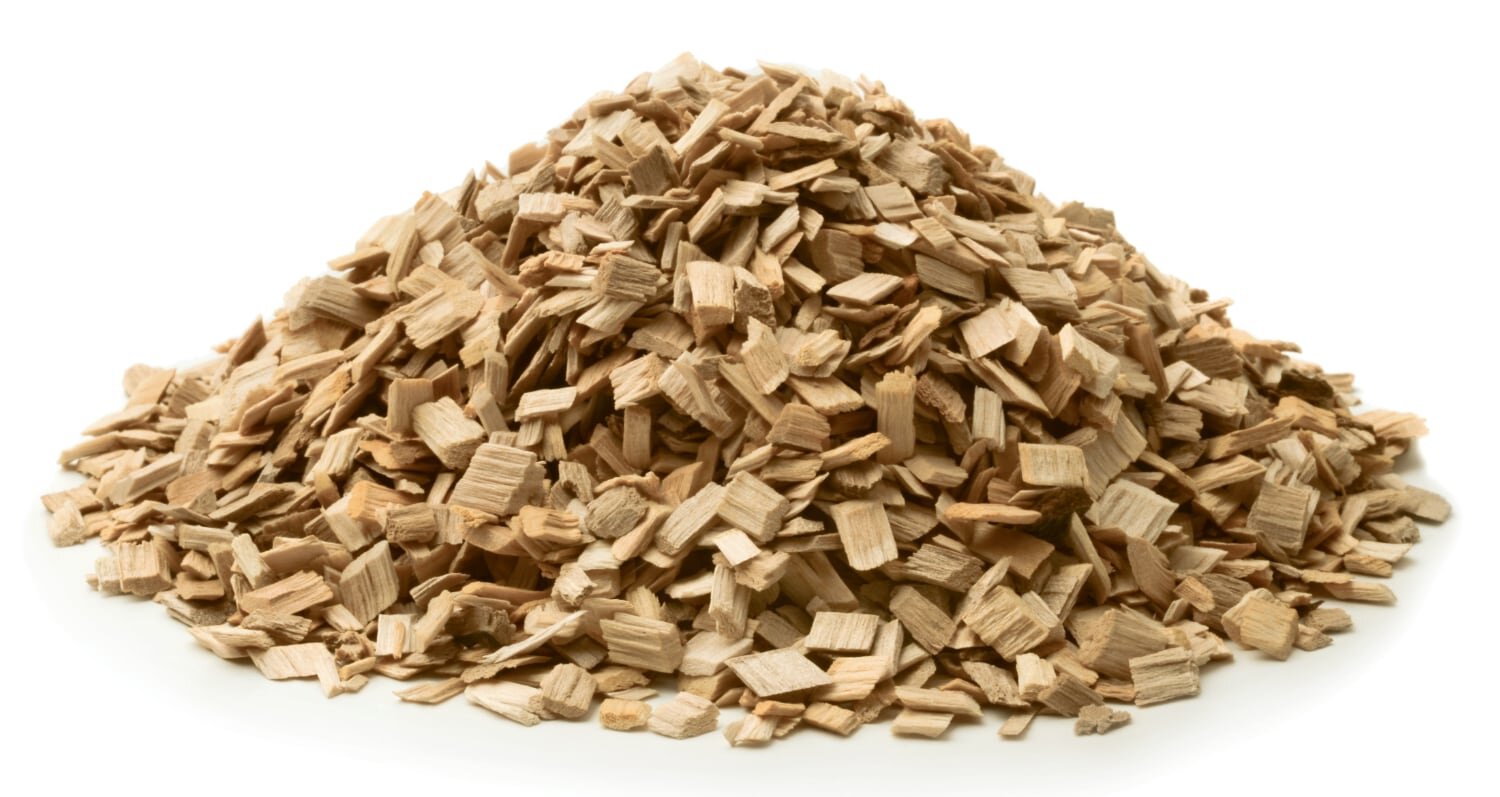
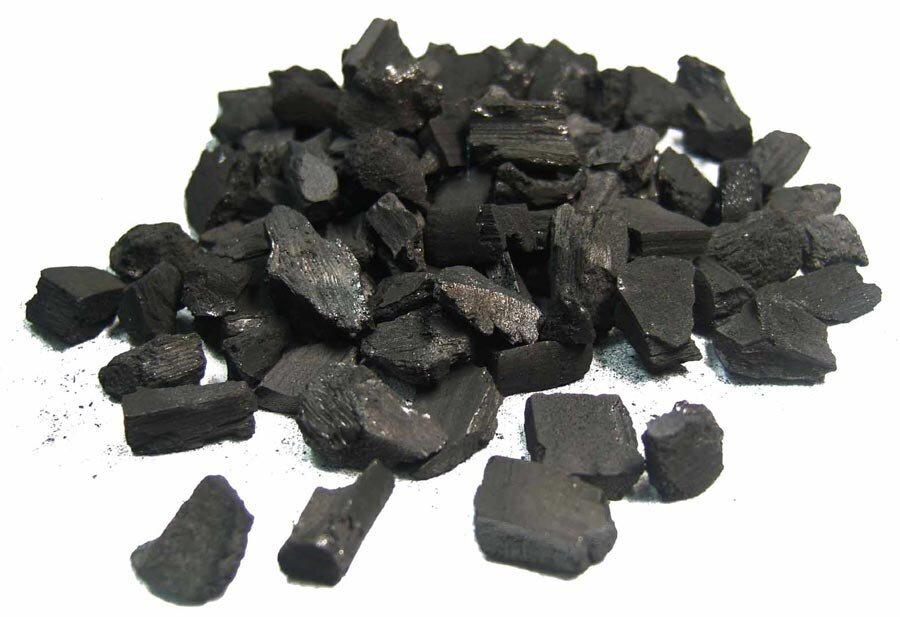
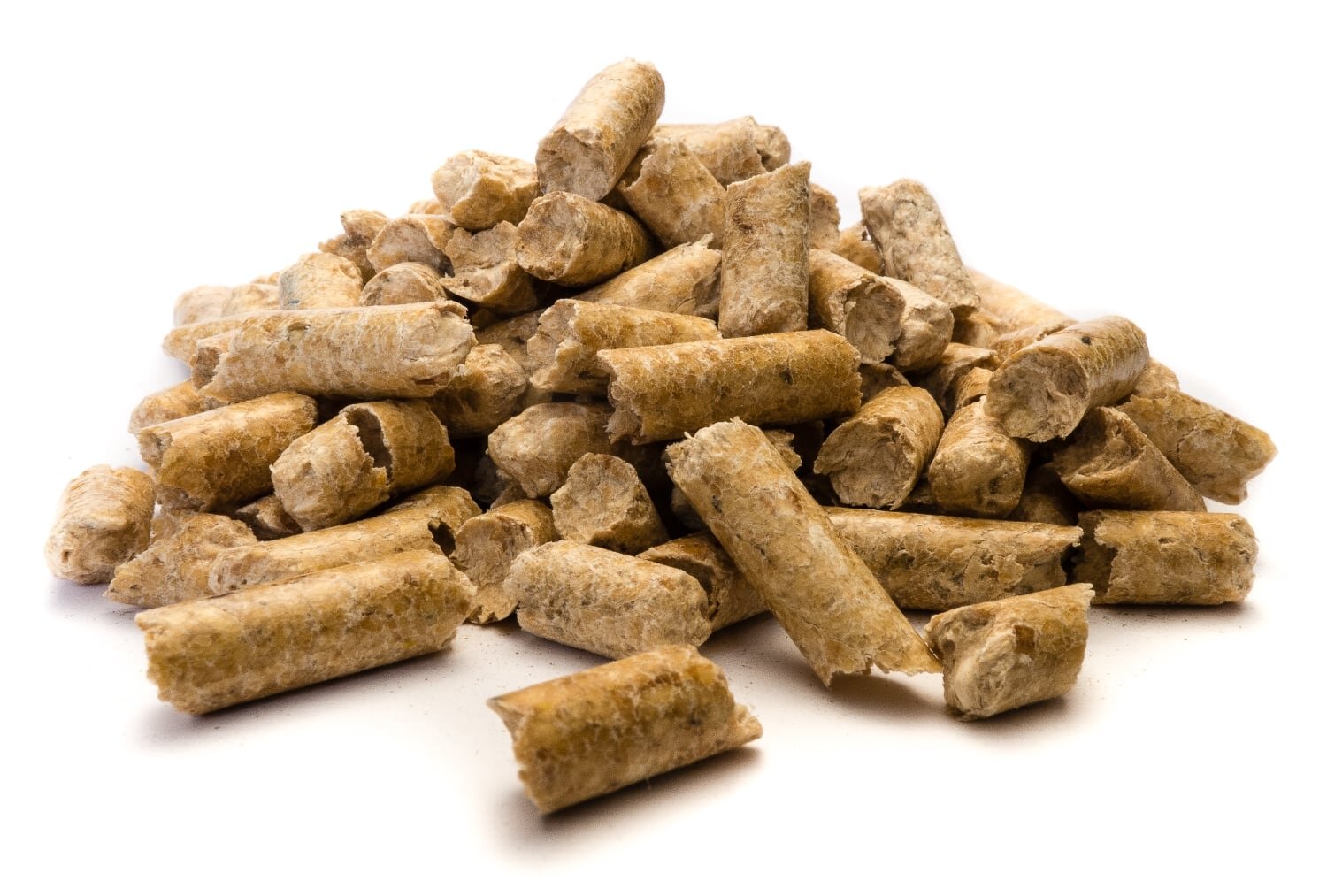
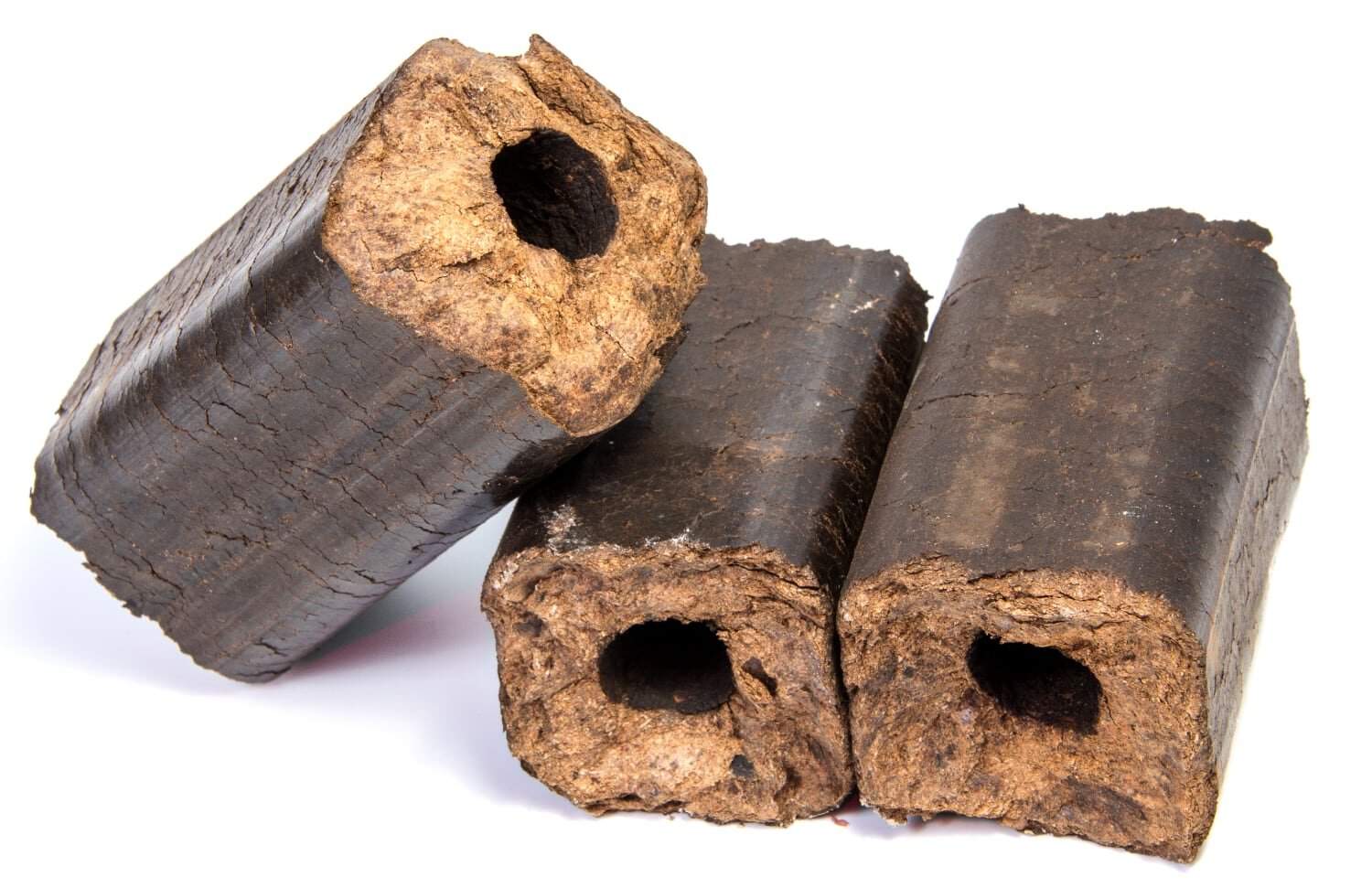

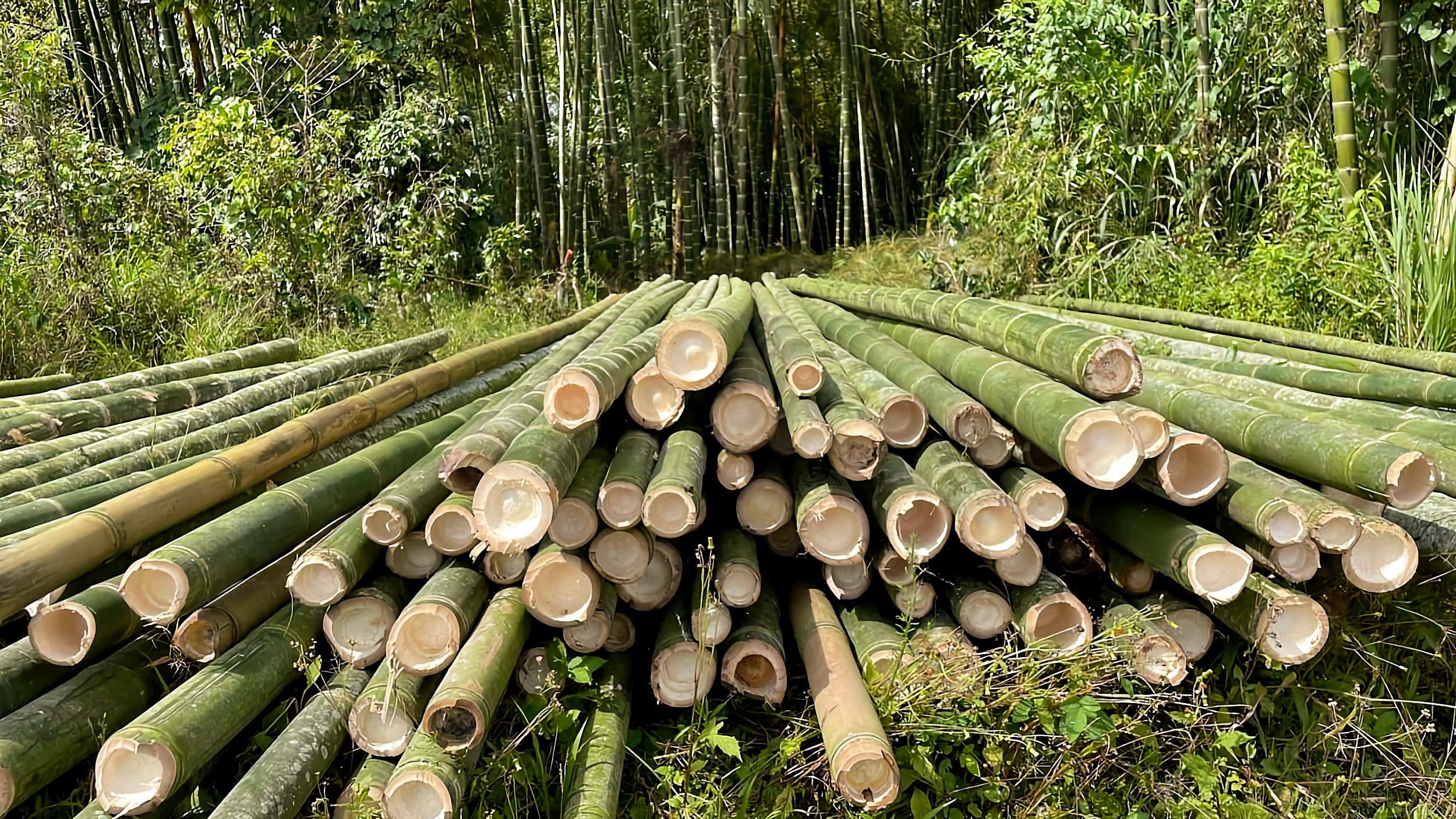
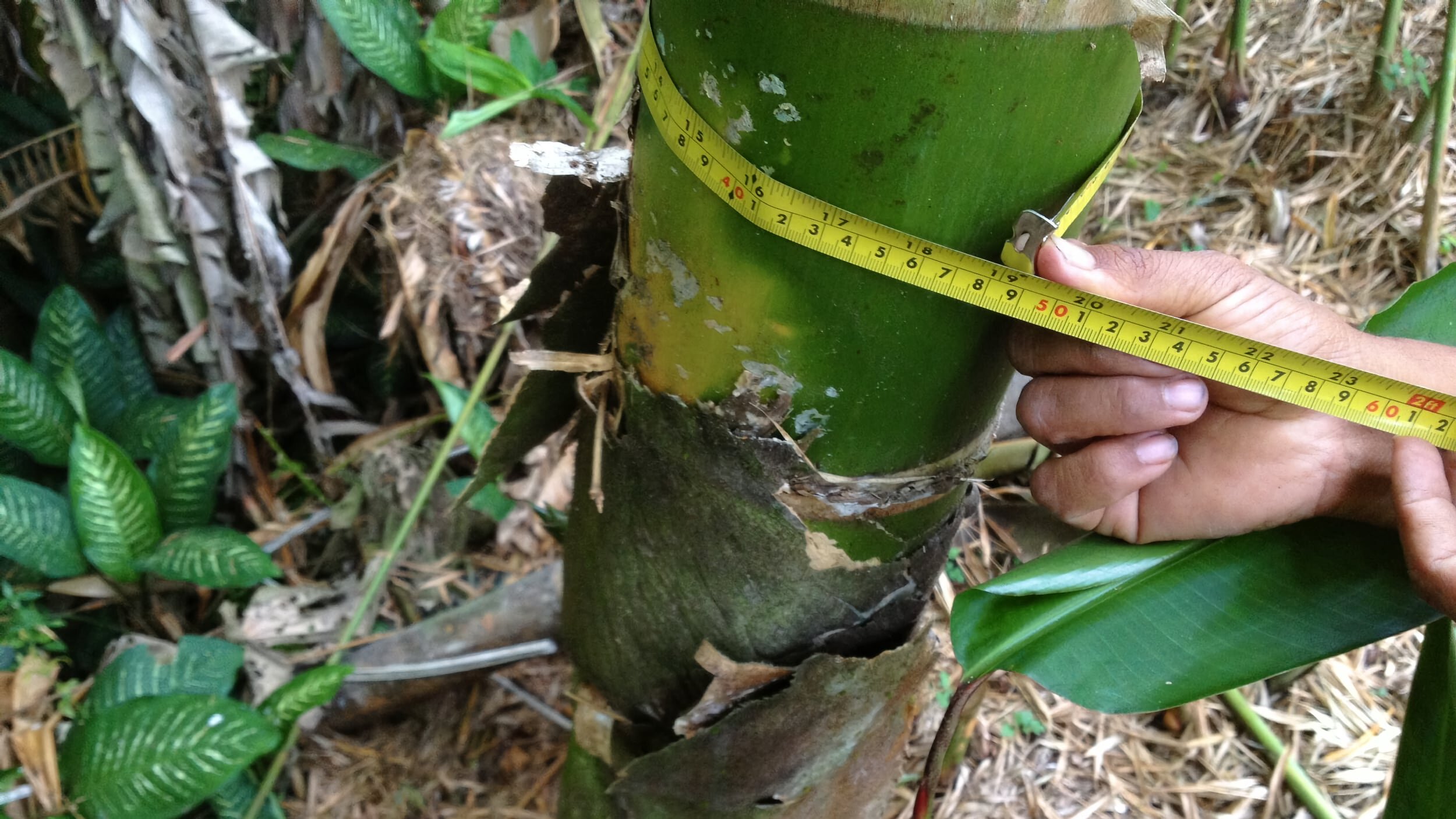
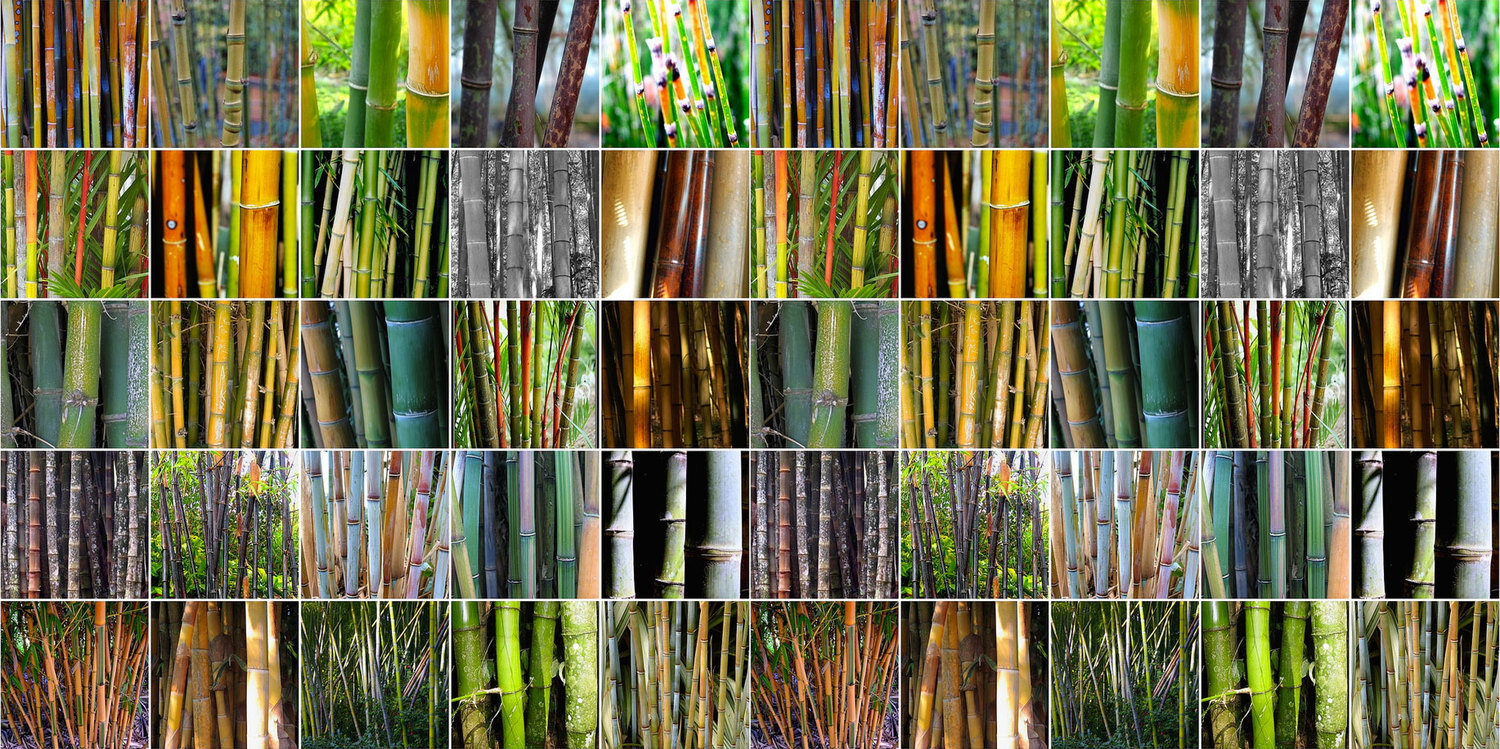
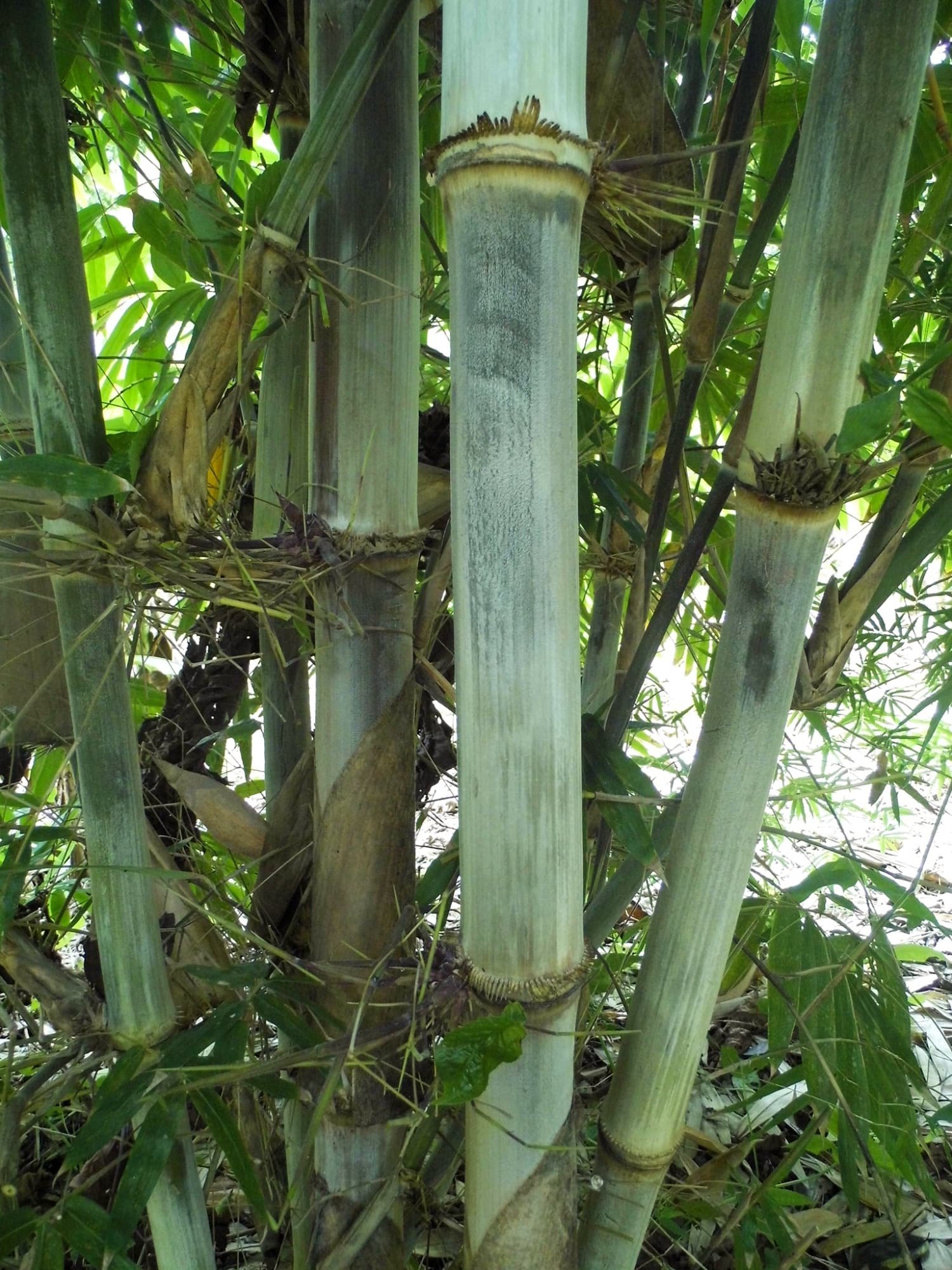
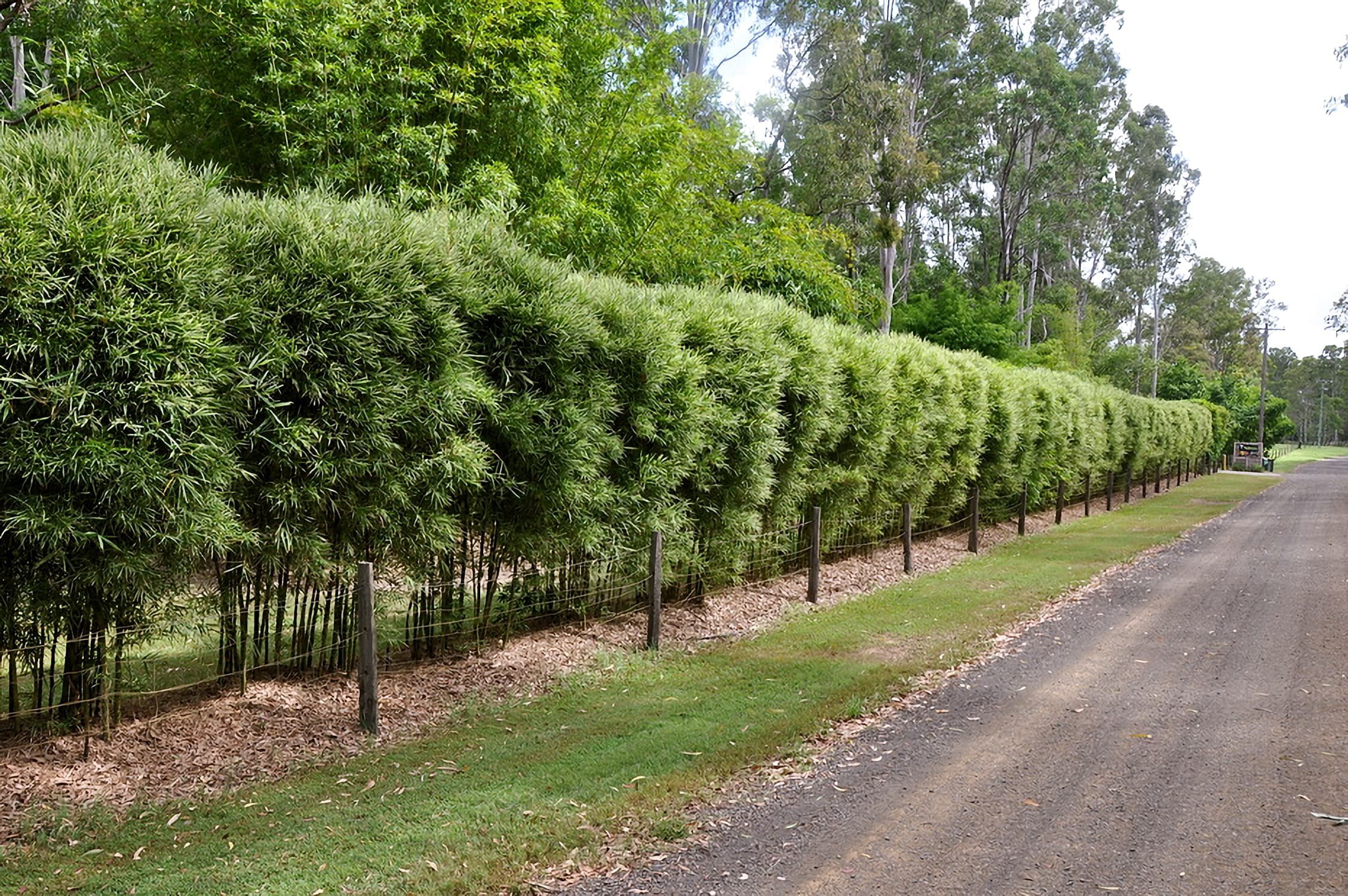

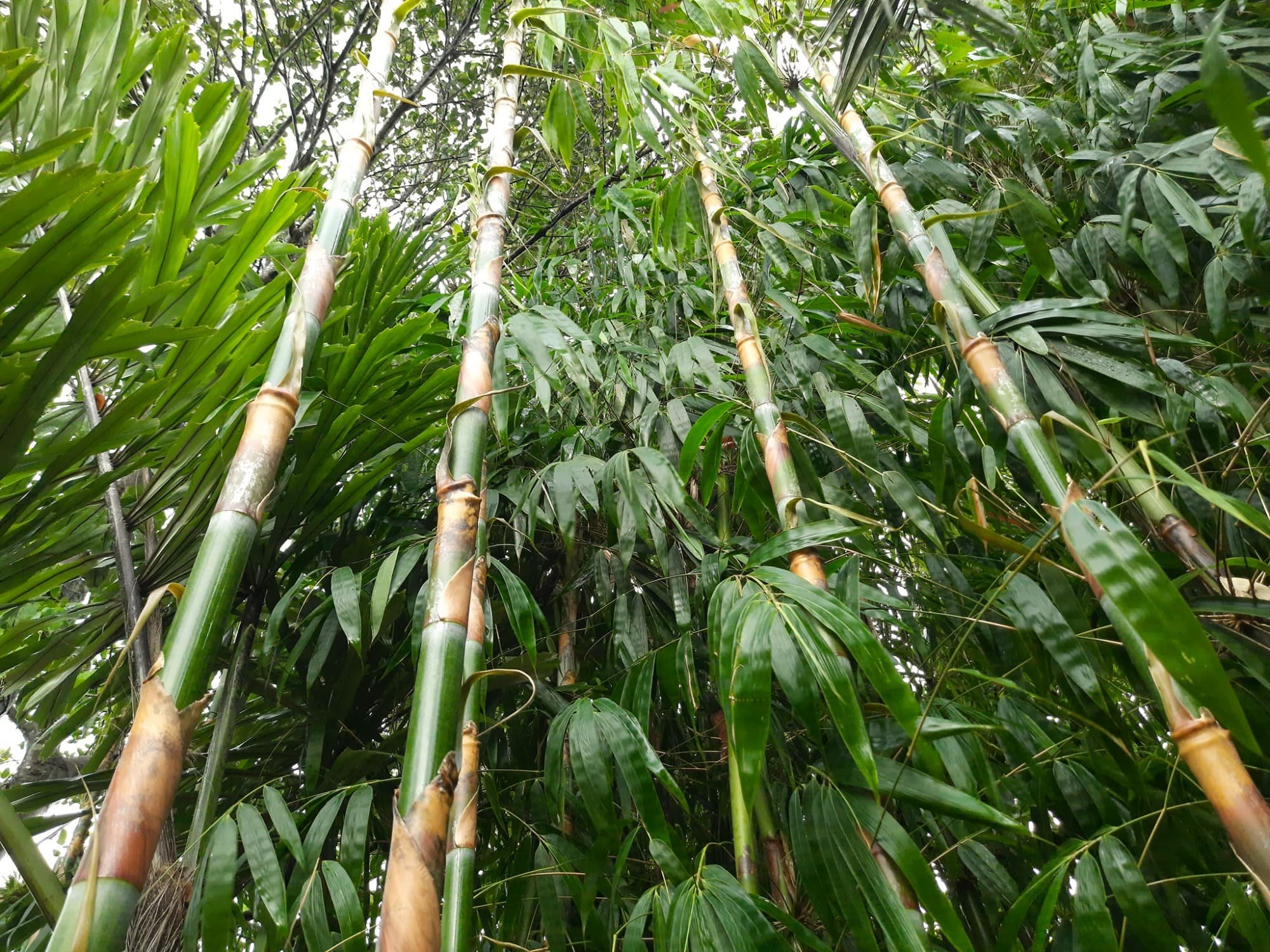
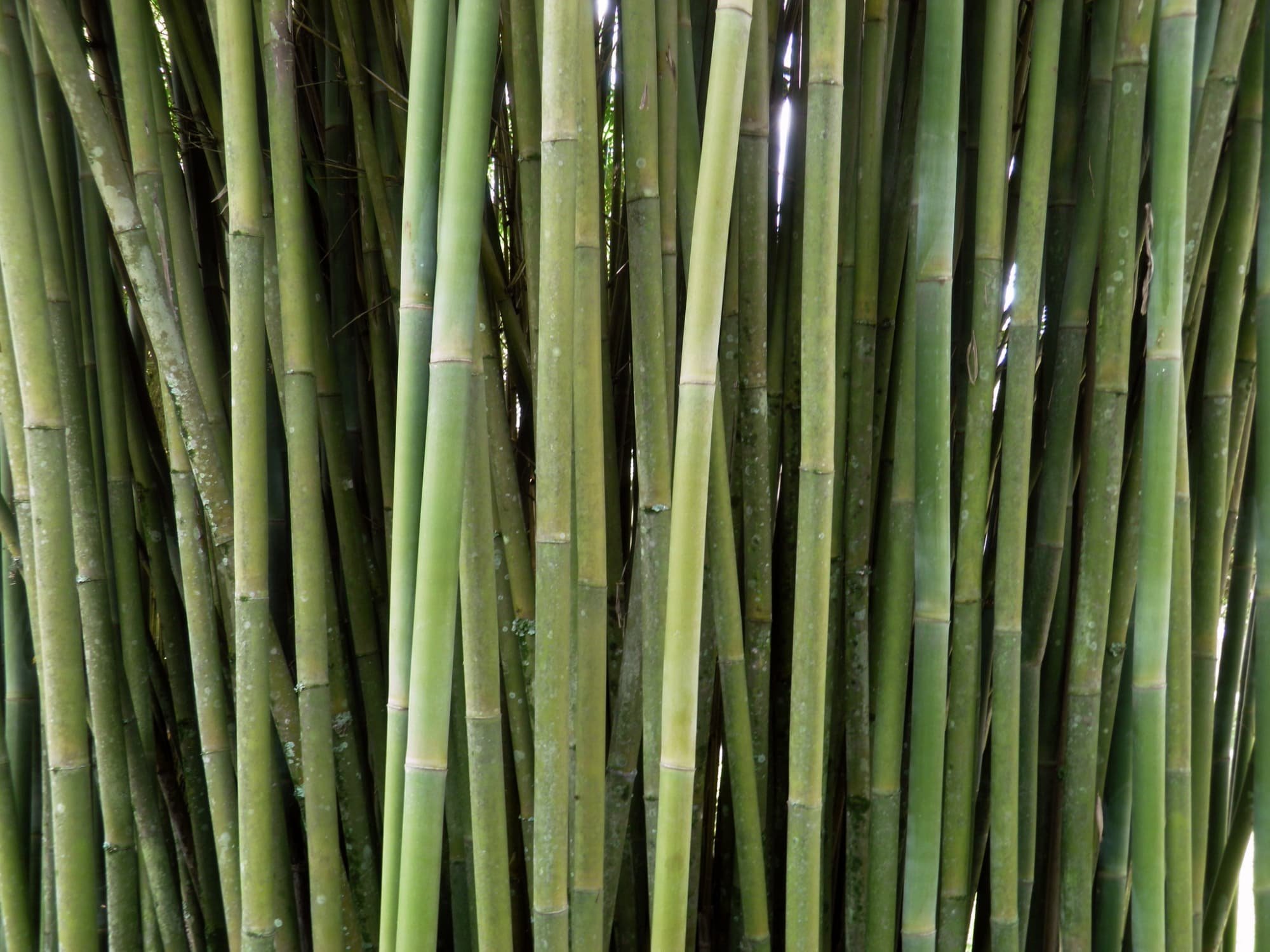
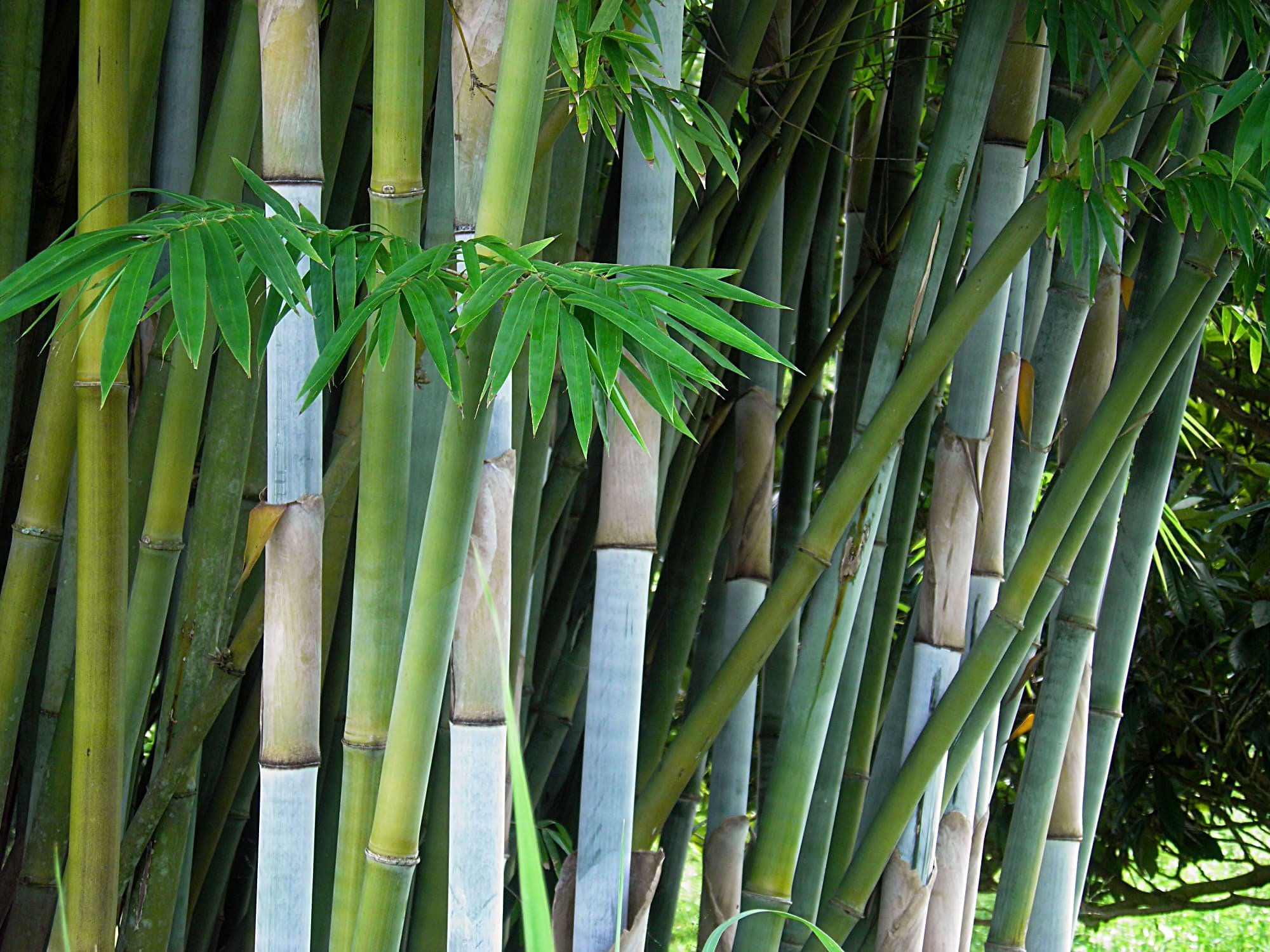
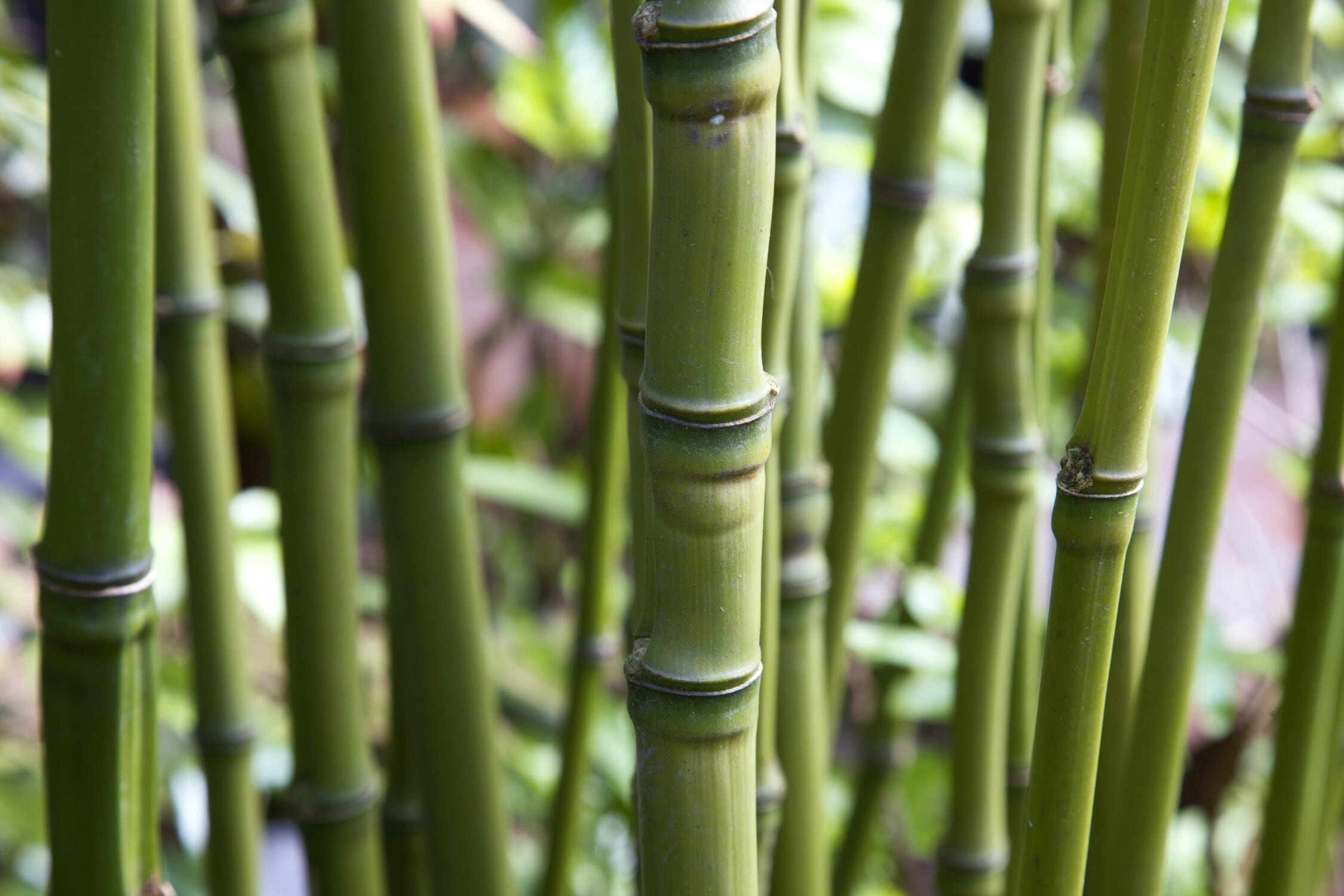


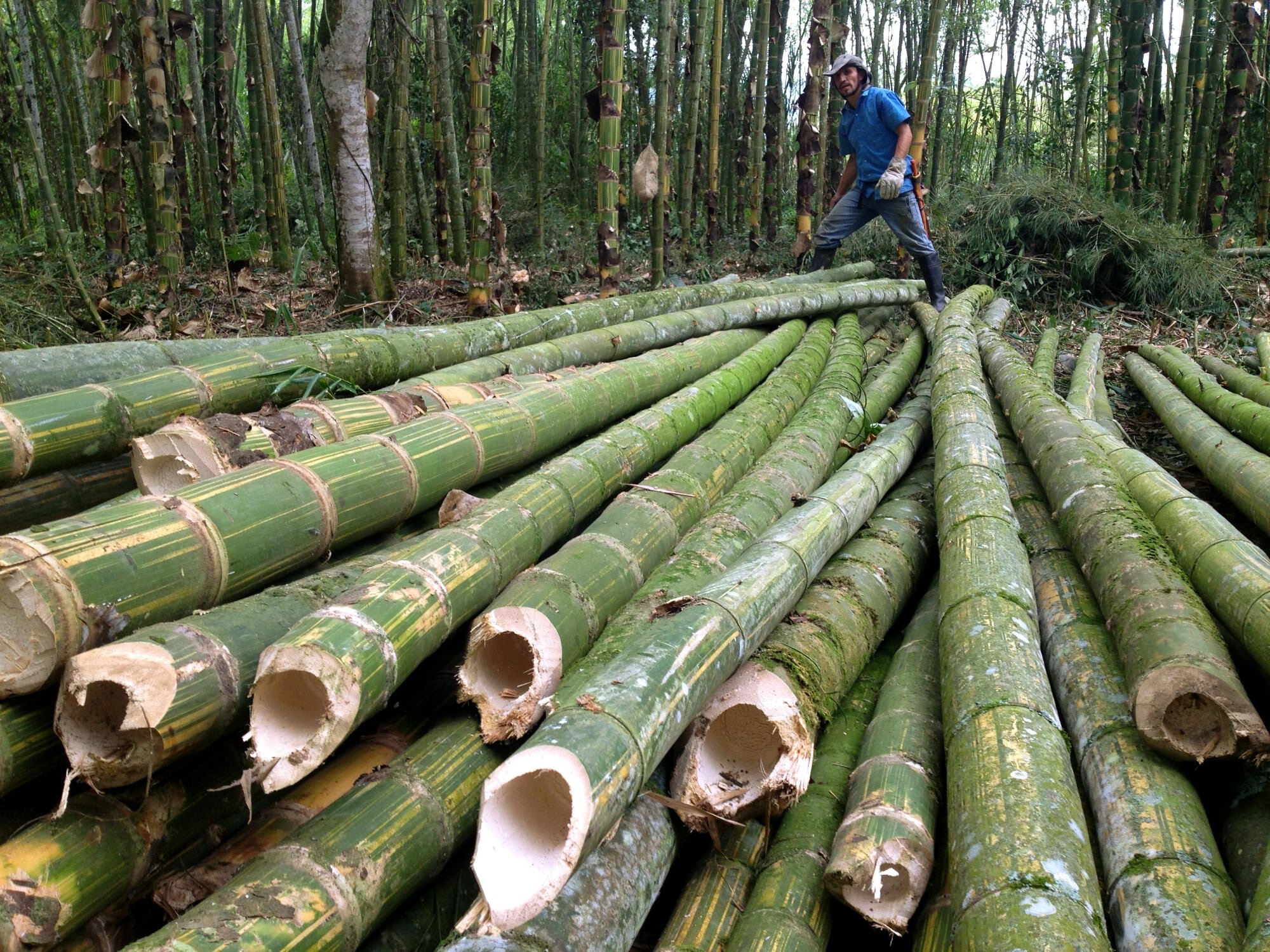
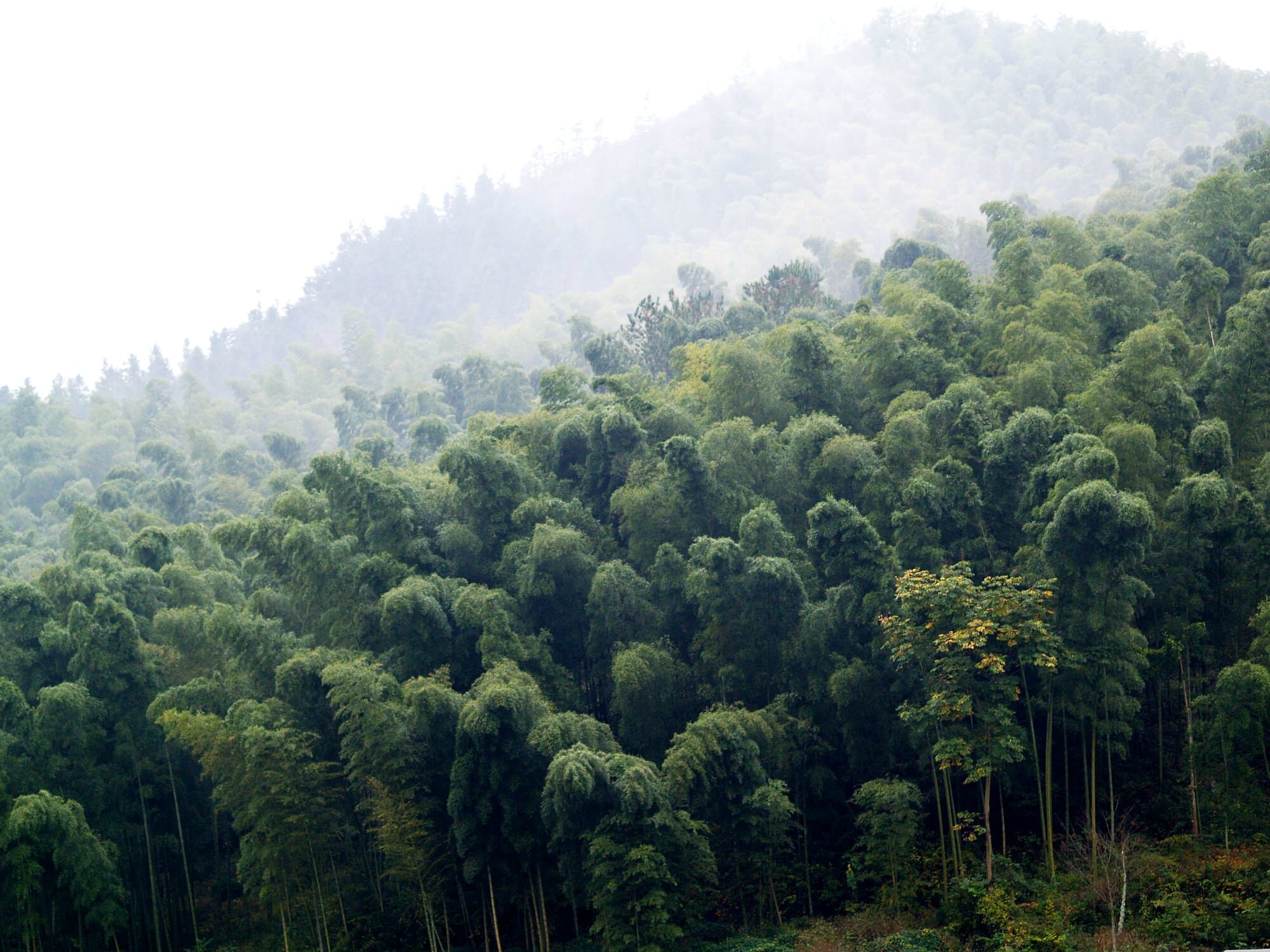

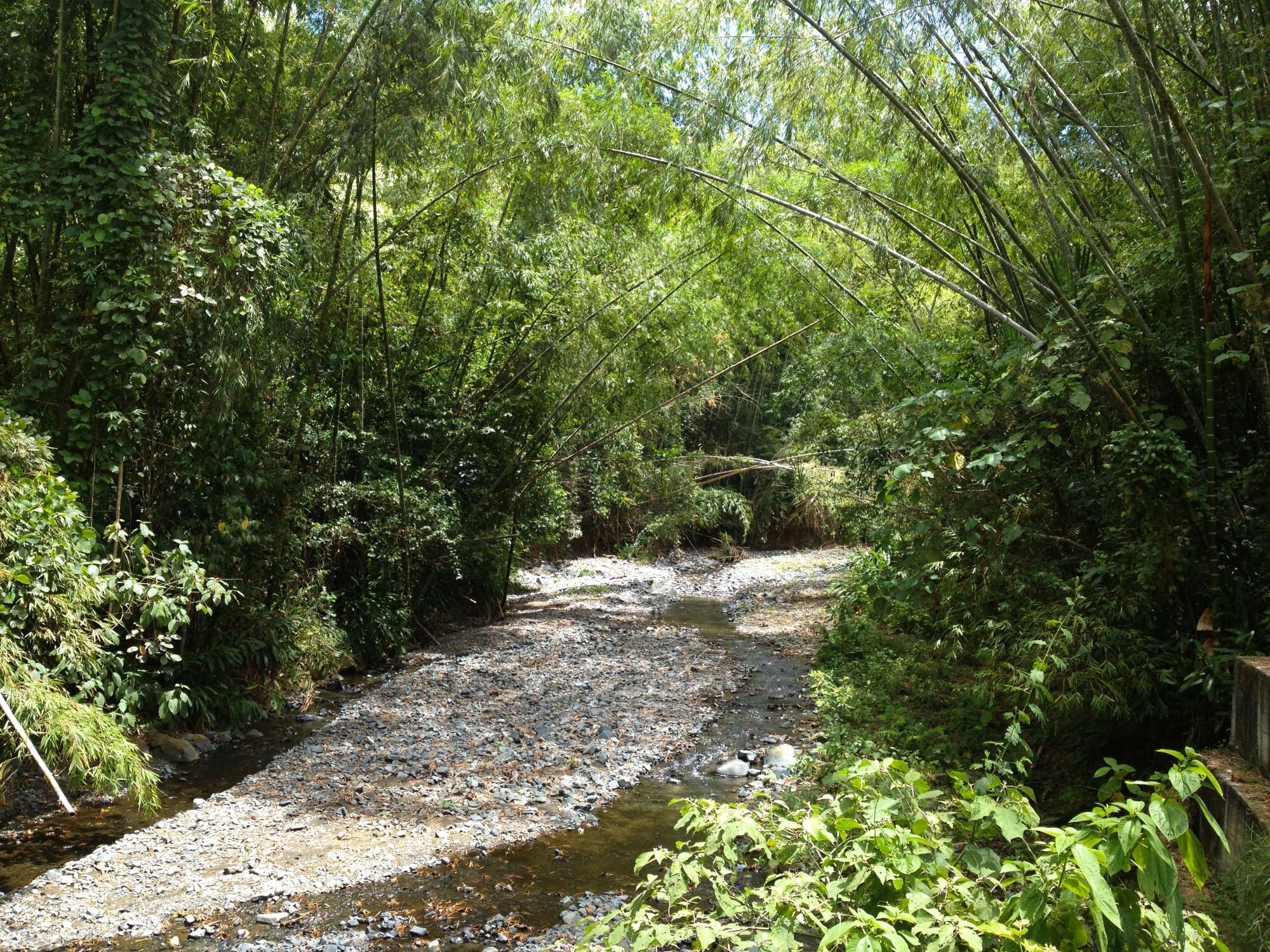
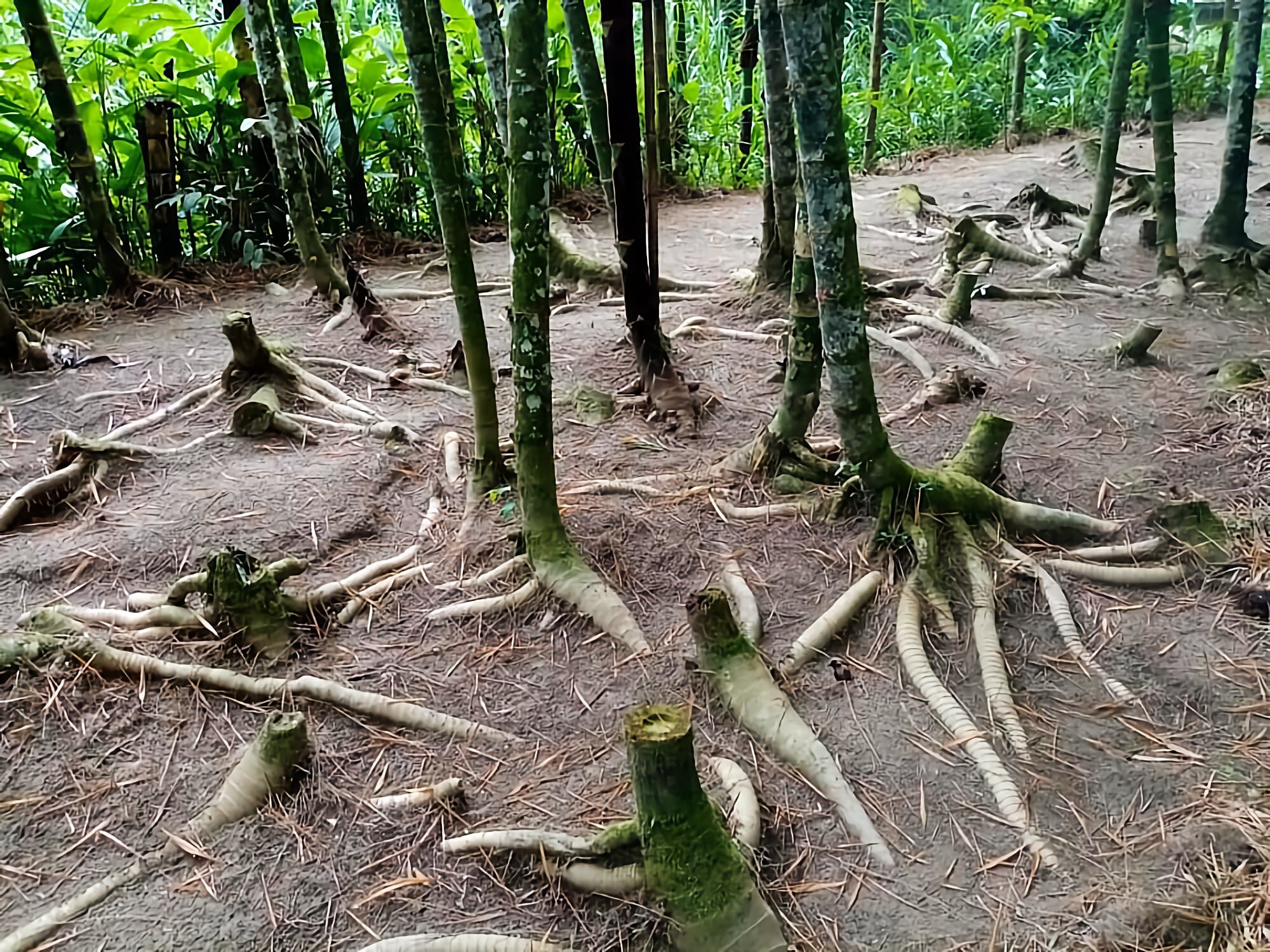


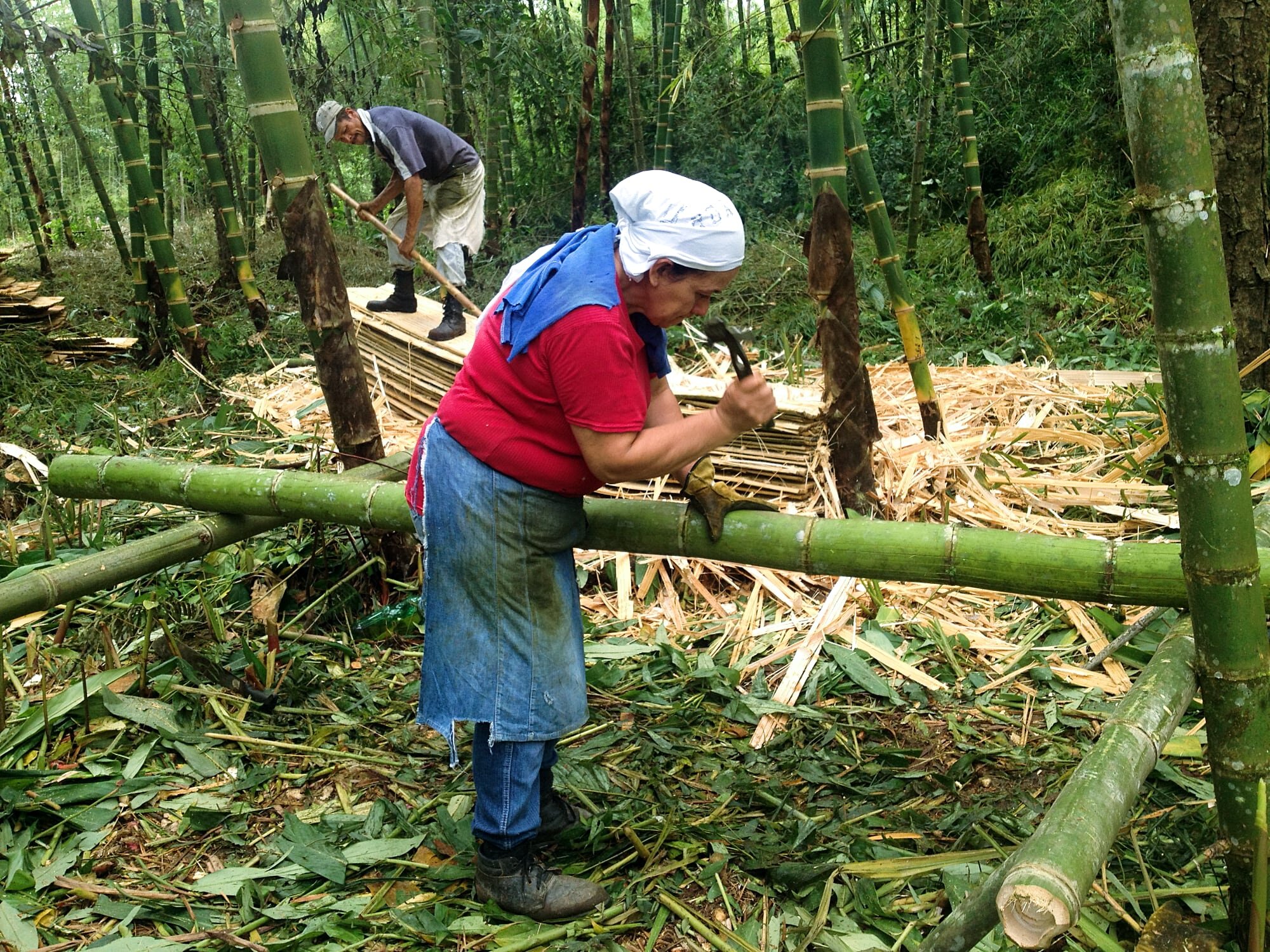

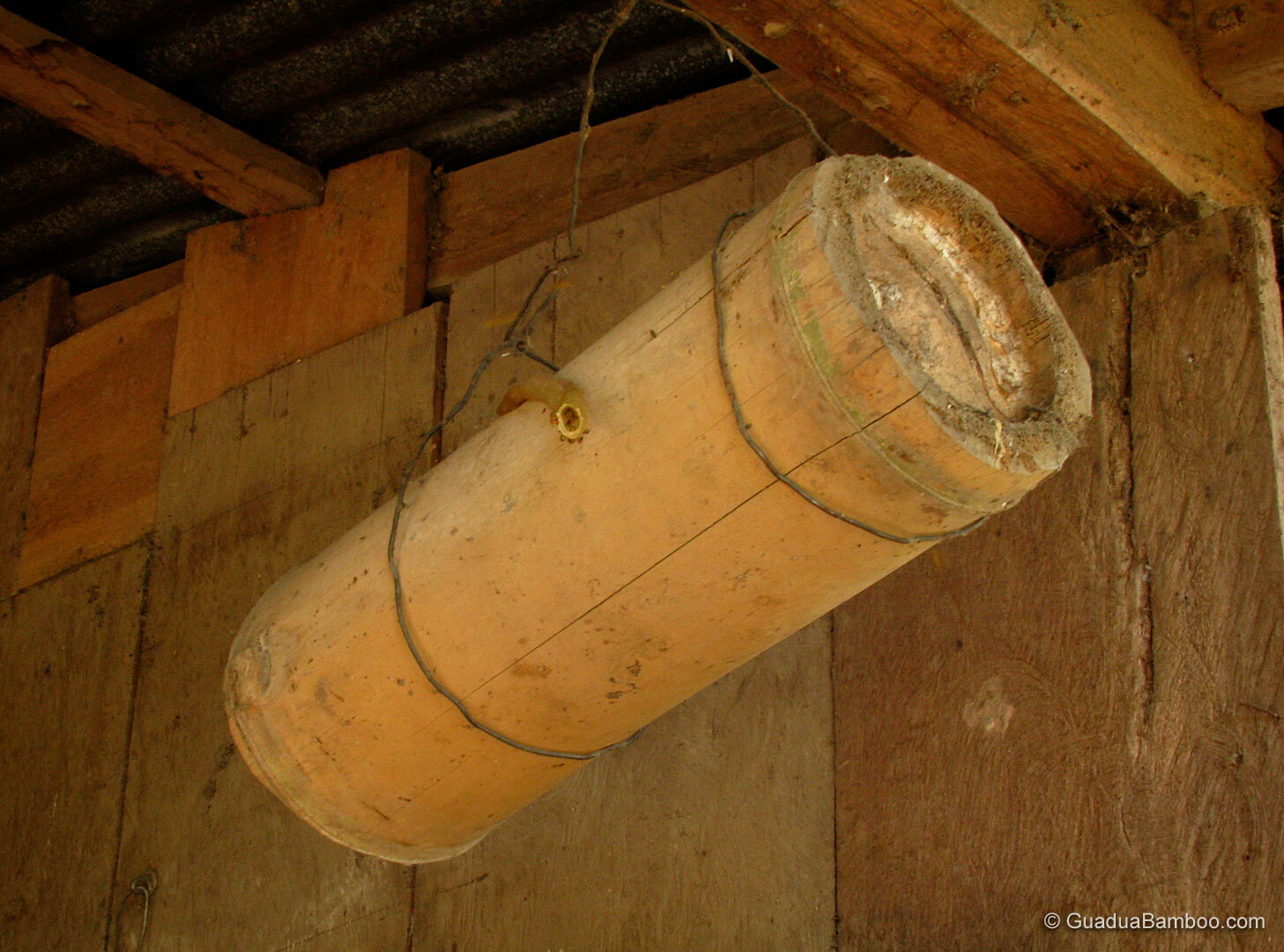
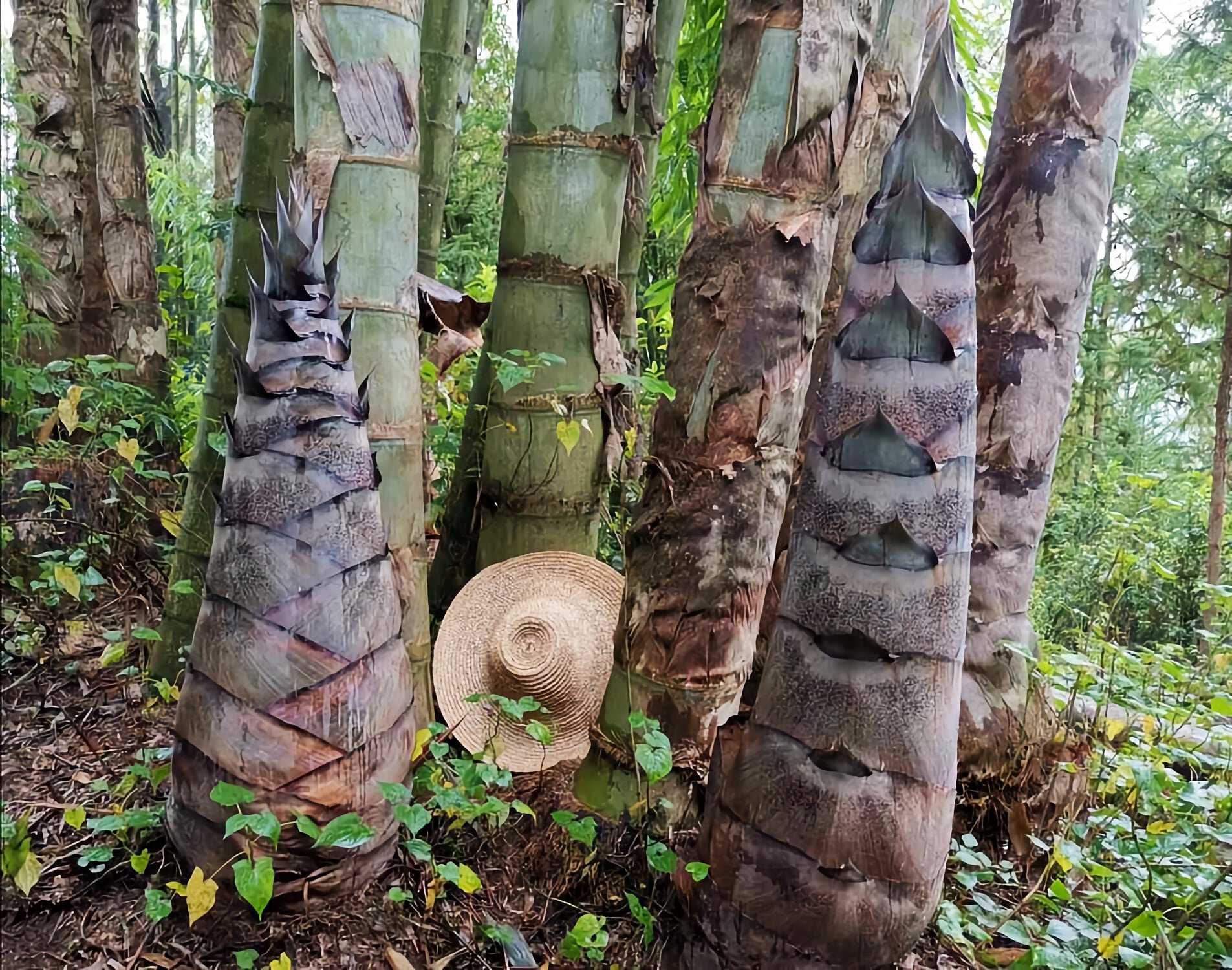


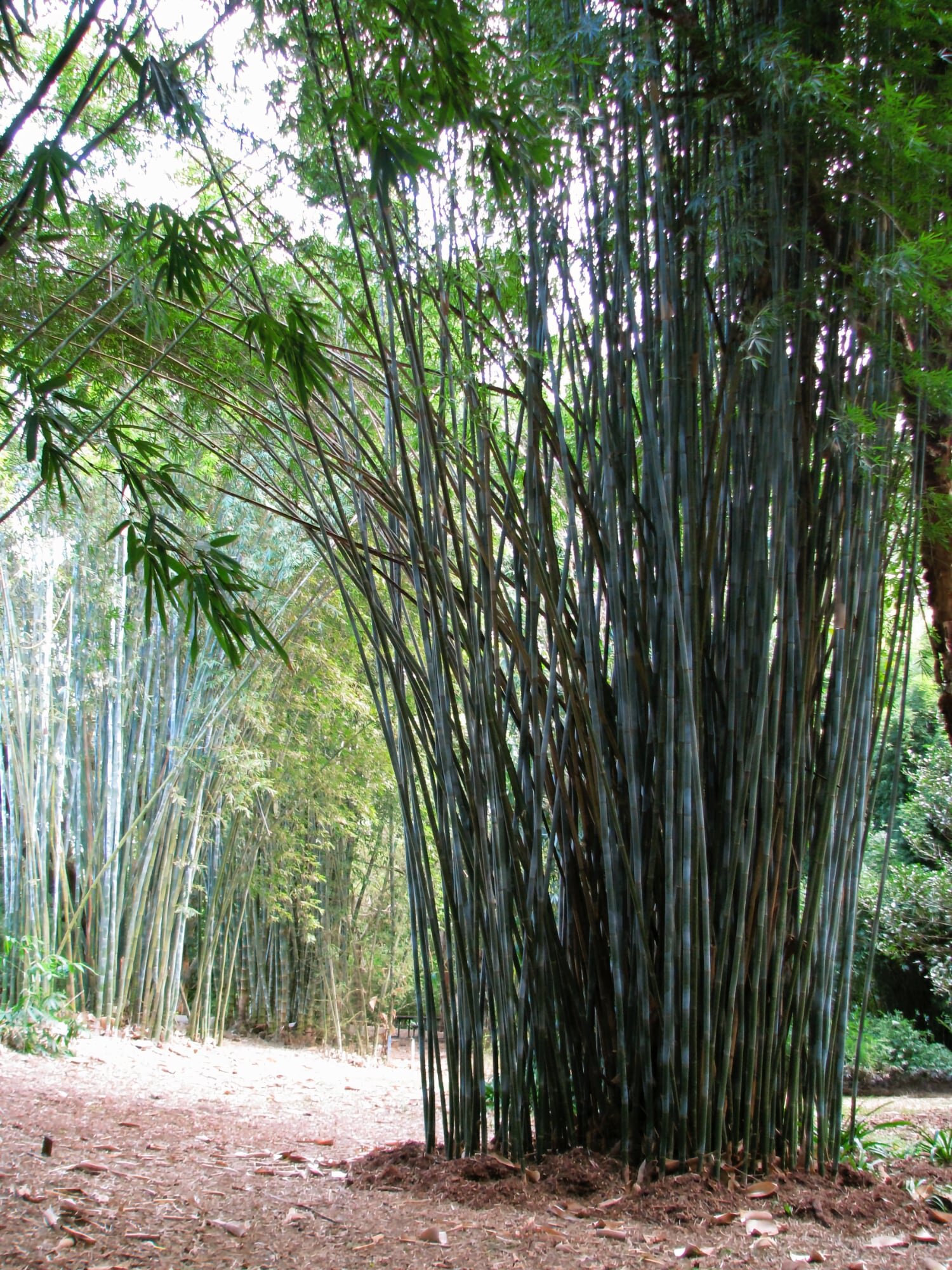


For biomass purpose, when can the bamboo be harvested according to the biomass content and can an entire area be harvested and how long do I have to wait to harvest it again? Do you have the data age-biomass content and moisture content?